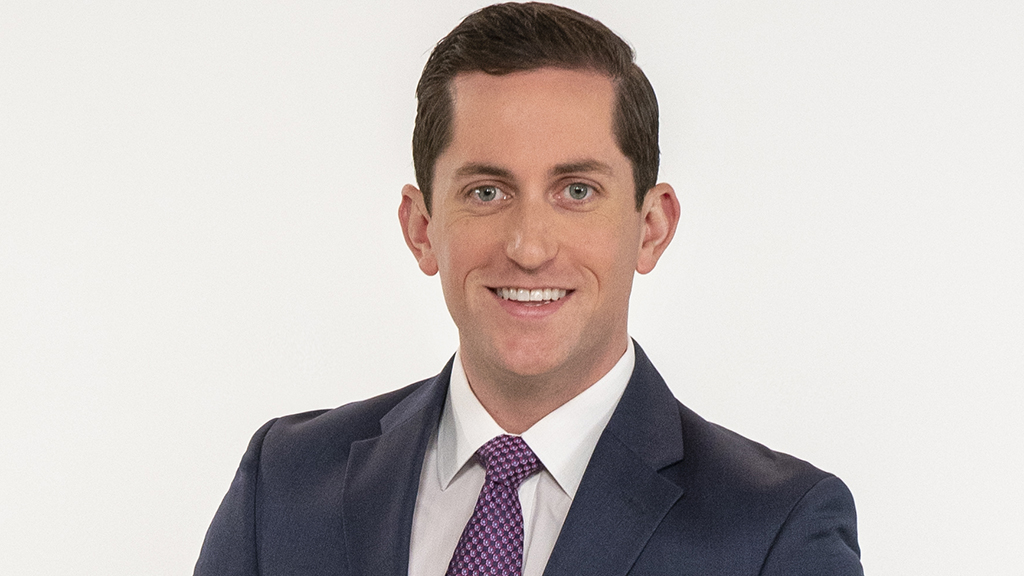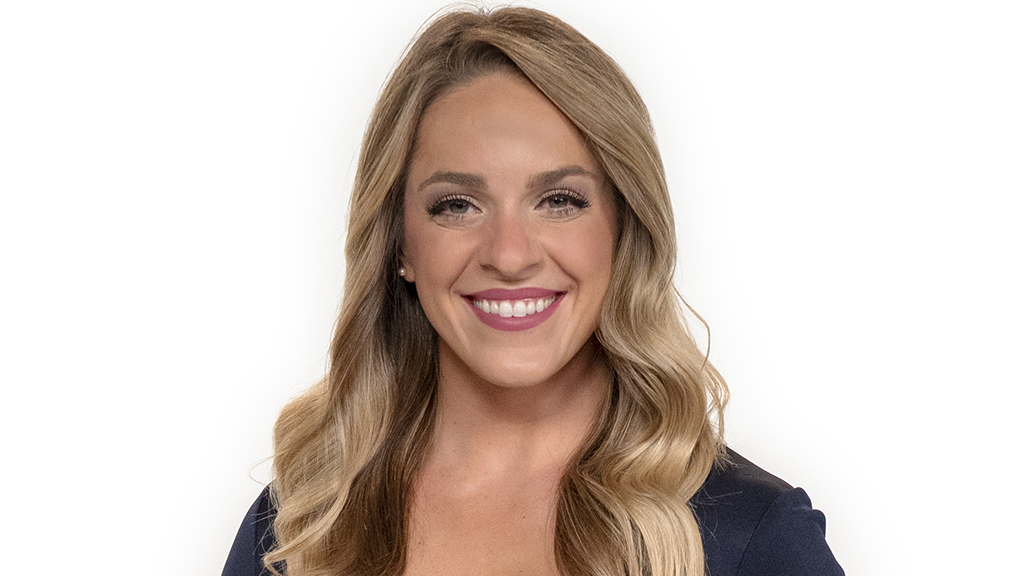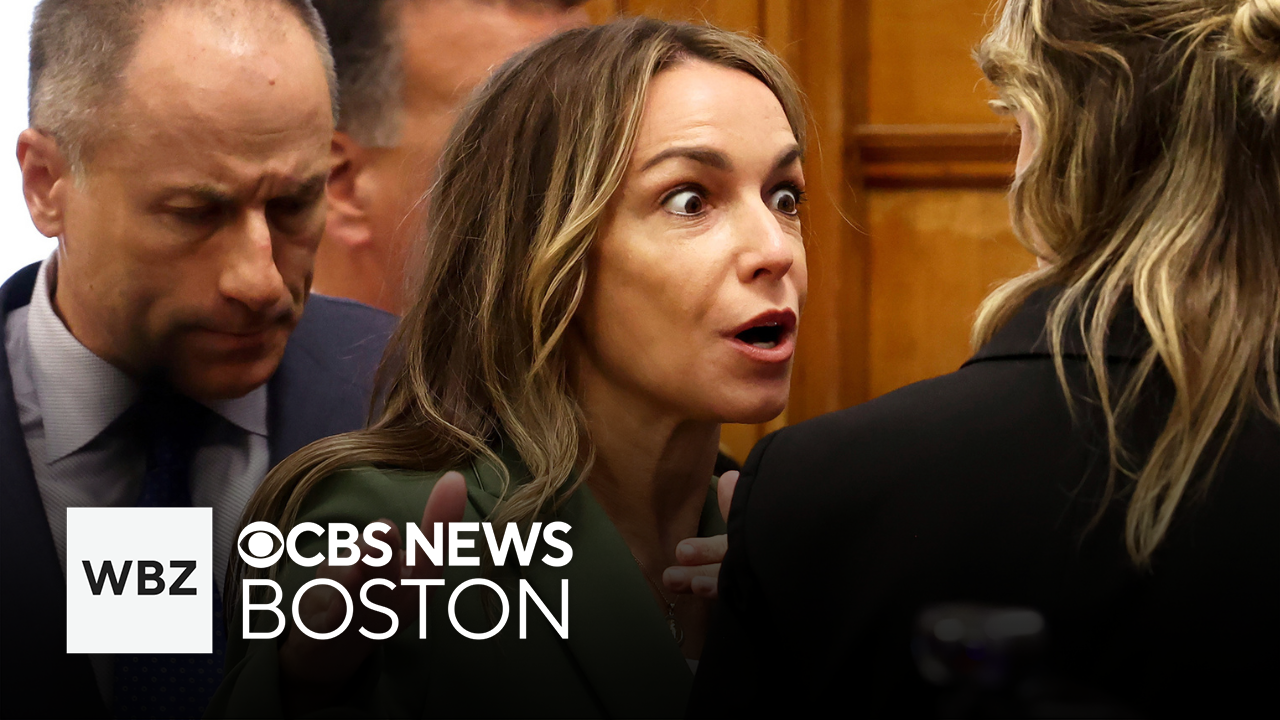Karen Read trial jurors ask hung jury question, still no verdict after day 3 of deliberations
Jurors in the Karen Read trial asked four questions to Judge Beverly Cannone Tuesday, with one indicating they may be facing the possibility of a hung jury on one of the charges. The jury left for the day without reaching a verdict, reaching a total of about 16 hours of deliberations.
At about 3:45 p.m., jurors, attorneys, and Read returned to the courtroom inside Norfolk Superior Court in Dedham, Massachusetts.
WBZ-TV's Kristina Rex was inside the courtroom throughout the day. She said that some jurors looked "genuinely exhausted," and sighed on their way into the room at the end of the day.
"Alright jurors. I know you want to go home," Cannone said, dismissing the jury for the day. Deliberations are set to resume Wednesday morning.
Hung jury question in Karen Read trial
Earlier, around 1:30 p.m., Cannone read a fourth question from the jurors, who wanted to know, "If we find not guilty on two charges but can't agree on one charge, is it a hung jury on all three charges or just one charge?"
Cannone said to attorneys without the jury present "this is a theoretical question, not a question I can answer."
The judge said jurors are not allowed to consider the consequences of their verdict.
Defense attorney Alan Jackson objected, saying the judge should tell the jury that it's premature to answer at this time.
Shortly after Read's first trial, it was revealed that the jury agreed to acquit Read on two charges, and were deadlocked on just one charge. Those discussions were never revealed in open court.
"We are going to end up in the exact same position that we were in last year," Jackson said.
A member of the jury in Read's first trial responded to Rex regarding the hung jury question.
"Yup, that's a great question," said the juror, who asked to remain anonymous. "Hopefully they get it right this time."
What is Karen Read charged with?
The prosecution accuses Read of hitting and killing Boston police officer John O'Keefe, who she was dating, with her SUV and leaving him to die in the snow outside a Canton, Massachusetts home after a night of heavy drinking in 2022. Read says she is being framed and O'Keefe was killed during a fight inside the home, then dragged outside.
Read is charged with second-degree murder, manslaughter while operating under the influence (OUI) of alcohol and leaving the scene where there has been personal injury and death.
Karen Read jury trial questions
The jury in Norfolk Superior Court in Dedham has been discussing the case for three days now. They had deliberated for about 10-and-a-half hours before asking Cannone four questions Tuesday.
Their first three questions were about drunk driving charges, Read's media interviews, and the verdict slip. Those first questions came in around 10:45 a.m.
The jury asked Cannone what the timeframe was for the operating under the influence charge against Read. Specifically, they wanted to know whether it was at 12:45 a.m. on January 29, 2022 when she left 34 Fairview Road or 5 a.m. when she realized O'Keefe was missing.
Cannone told the jury, "You folks have all the evidence, and remember it's only you who decides the facts in this case. That's the answer to that question. You are the fact finders."
Jurors also wanted to know if video clips from Read's media interviews that were played during trial are considered evidence.
"Yes the videos are evidence, you should weigh the defendant's statements as you would any other piece of evidence and give them whatever weight you deem appropriate," Cannone said.
The third question from the jury was if a guilty conviction on a lesser included charge also results in a conviction on the overall charge. In their question, the jurors said, "for example, offense two, No. 5."
On the verdict slip, for manslaughter while operating a motor vehicle under the influence, which is offense two, option five is guilty of lesser offense for only operating under the influence of liquor.
Cannone decided to amend the verdict slip. She printed a copy for each juror and went over it with them, saying she hoped it would clear up any confusion.
Outside court, Kristina Rex asked Karen Read's father, "would just OUI be a win for your family? If it was just that lowest charge?" After a long pause, Bill Read said, "I'm not sure."
Karen Read judge's response to jurors
Before Cannone answered the jury's questions, she had the jury leave and attorneys from both sides made their arguments for how each question should be answered.
The defense wanted to simply tell jurors on the OUI question "you are the fact finders." Special prosecutor Hank Brennan asked for the time to be for 12:45 a.m. because he said, "The case has always been focused at that time." Cannone sided with the defense because there was no time specified in the indictment.
Regarding Read's media interviews, the defense objected to the judge's decision, saying they wanted Cannone to say, "whatever weight, if any…" but the judge did not agree.
Read's attorneys expressed concerns Monday with the verdict slip, which was at the center of the third question.
The defense formally asked Cannone Monday to amend the second verdict slip for manslaughter. They said it confuses jurors because they see just one "not guilty" option that applies to all of count two, compared to four "guilty" options when including potential lesser charges.
Cannone denied the motion without a hearing, but after the issues on Tuesday decided to make changes.
Legal analyst on jury questions
After two full days of silent deliberations, WBZ legal analyst Katherine Loftus weighed in on what the questions indicate for the outcome of this case.
"I do think that there was definitely a momentum shift towards the defense. When I heard those questions about whether they can take into account the videos of Karen Read," Loftus said, "those to me seem to really be beneficial to the defense position, not the Commonwealth."
"Law disfavors hypothetical questions"
Retired Massachusetts Superior Judge Jack Lu said there are rarely moments more fragile in the American justice system than when a jury is deliberating.
"This is a super, super sensitive time," Lu told WBZ-TV. "A deliberating jury. Just as a matter of law, they have entered into a special status that the law requires they be treated gingerly."
When the jury asked their first set of questions during deliberations on Tuesday, one of them was considered by the court to be worded in a hypothetical manner. Lu said judges cannot engage with questions framed that way.
"American law disfavors hypothetical questions anyways," said Lu. "But a hypothetical question from a deliberating jury is a no-no. She [the judge] has to carefully select every word she says because it's a deliberating jury. An ill-chosen word could send the case towards a verdict in one way or the other, unintentionally perverting justice."
Karen Read trial deliberations
Through the first two days of deliberations, the jury did not ask any questions or send any communications to the judge.
When Read stood trial for the first time in 2024, jurors deliberated for 27 hours before a mistrial was declared.






